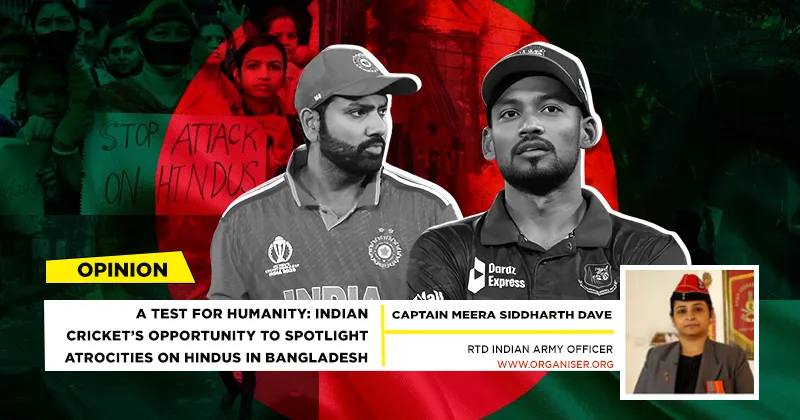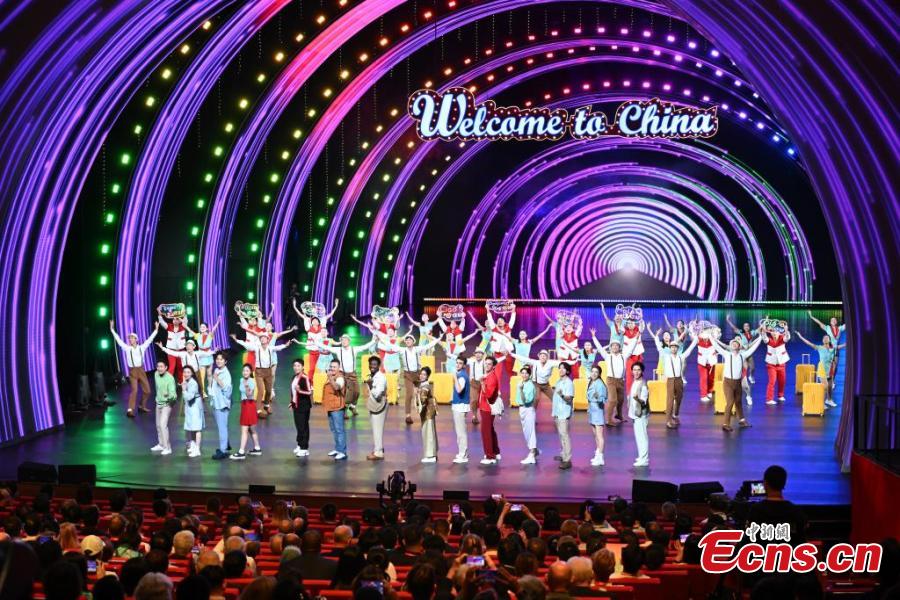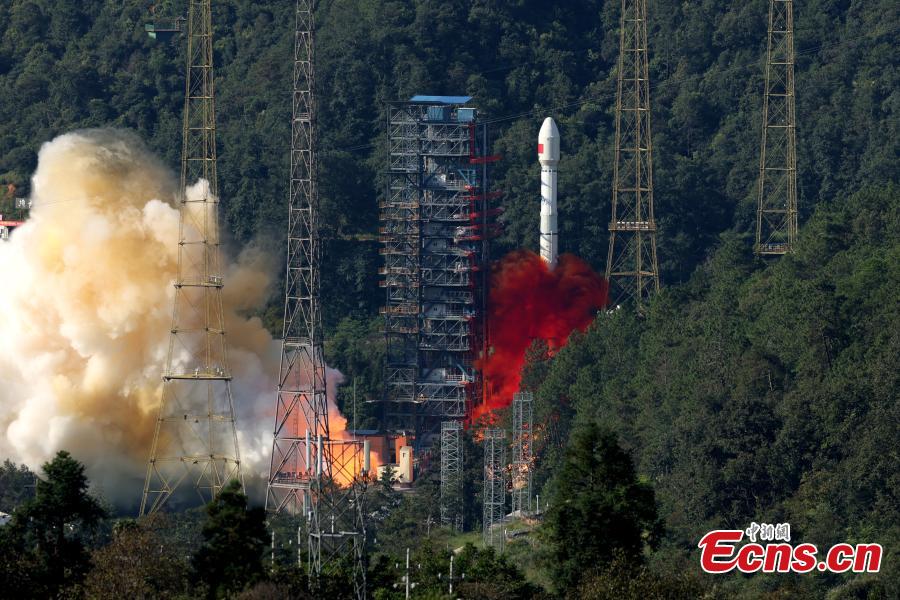
In recent years, sports events have transcended their traditional roles, becoming powerful platforms for raising awareness about human rights violations and societal injustices. From the global attention garnered by the Black Lives Matter movement to the symbolic protests during the Beijing Olympics, athletes and sports organisations have demonstrated the ability to shine a light on critical issues that go beyond the playing field. The Bangladesh cricket team is visiting India for a Test cricket series.
Why should the Board of Control for Cricket in India (BCCI) and the Indian cricket team, NOT take a stand against the ongoing atrocities faced by Hindus and minorities in Bangladesh. Just as sports have been utilised in the past to highlight social and political causes, this series could serve as a platform to bring international attention to the plight of the marginalised communities in Bangladesh. Historically, sports have been instrumental in bringing awareness to social issues.

One of the most iconic moments was during the 1968 Mexico City Olympics when American athletes Tommie Smith and John Carlos raised their fists in a Black Power salute, protesting racial discrimination in the United States. More recently, the Black Lives Matter movement took center stage during numerous sports events globally, with athletes taking a knee in solidarity against racial injustice. Similarly, the Palestinian cause has also found support during various international sports events, where athletes and teams used their platform to draw attention to the ongoing human rights violations in the region.
Boycotts have also been a part of this history, with the 1980 Moscow Olympics boycott being one of the most notable examples. In protest against the Soviet invasion of Afghanistan, over 60 nations, led by the United States, refused to participate in the games. This action highlighted the significant role sports can play in challenging political decisions and raising global awareness.
Given these examples, the BCCI and the Indian cricket team have a precedent to follow in using sports as a tool to call attention to pressing human rights concerns in Bangladesh. The current Bangladesh cricket series offers a timely opportunity to make a global statement about the atrocities being committed against Hindus and minorities in Bangladesh. The plight of Hindus and other minorities in Bangladesh has been a matter of grave concern for years.
Reports of targeted killings, the rape of women, and the desecration of Hindu temples have surfaced repeatedly. These heinous acts continue to occur, often without substantial international attention. Minority communities in Bangladesh have faced systematic persecution, leaving them vulnerable to violence and exploitation.
For instance, in recent years, there have been several incidents where Hindu temples were attacked, and religious festivals were disrupted. These attacks are not just isolated events but part of a larger pattern of religious intolerance. Women, in particular, have been targets of sexual violence, with many cases of rape going unreported or unpunished.
Such acts of terror have created an atmosphere of fear and helplessness among Bangladesh’s Hindu population, who have been increasingly marginalised in the predominantly Muslim nation. The BCCI, as one of the most influential cricket boards in the world, and the Indian cricket team, with its global fanbase, are in a unique position to bring attention to this issue. Just as athletes around the world have taken a stand against injustices, Indian cricketers can show their solidarity with the persecuted Hindus and minorities in Bangladesh.
One powerful way to achieve this would be through symbolic gestures during the cricket series. The team could wear black armbands to symbolise mourning for the victims of violence. Players could take a moment of silence before the start of the match to honor those Hindus and minorities, who have suffered in Bangladesh.
These actions, though symbolic, would send a strong message to the international community and media, drawing attention to the atrocities that have gone underreported for too long. In recent times, it’s become customary for Pakistani and Bangladeshi Muslim cricketers to begin their Man of the Match speeches or media interactions with Islamic greetings, invoking the name of Allah. This expression of faith is accepted and respected on the global stage.
It raises a pertinent question: Can Indian cricketers not similarly express solidarity with their Hindu brothers and sisters in Bangladesh, who are facing horrific violence and persecution? Mentioning these atrocities, even briefly, in their Man of the Match acceptance speeches could shine a much-needed spotlight on the plight of minorities in Bangladesh, reminding the world of the importance of standing up for justice and humanity. Is it not time for Indian sports figures to also use their platforms to speak out, just as others have done for their causes? Additionally, the BCCI could issue statements highlighting the plight of minorities in Bangladesh, leveraging their platform to amplify the voices of the oppressed. Just as the English Premier League and NBA have supported the Black Lives Matter movement, the BCCI can use its influence to foster global awareness about the situation in Bangladesh.
NBA The Indian cricket community can take inspiration from global sports movements. The way athletes came together to protest racial injustices during the Black Lives Matter movement should serve as a model for how Indian cricketers can approach this issue. The Beijing Olympics boycott also demonstrates how sports can challenge political actions and human rights violations on the global stage.
By making this Test series about more than just cricket, the Indian cricket team and the BCCI have an opportunity to raise international consciousness about the persecution of Hindus and minorities in Bangladesh. This series could serve as a reminder that the world of sports is not isolated from the world of politics and human rights. Cricket, being a unifying force in the subcontinent, can be a powerful tool in drawing attention to the need for justice and peace for Bangladesh’s minorities, especially, Hindus.
In a world where sports events increasingly serve as platforms for social justice, the current Test cricket series between India and Bangladesh should not be limited to just competition on the field. It can and should be used to bring global attention to the atrocities being committed against Hindus, the minorities in Bangladesh. The BCCI and the Indian cricket team have an unparalleled opportunity to demonstrate solidarity with the victims, raise awareness, and use the power of sports to advocate for justice, following in the footsteps of other global sports movements.
Through symbolic gestures and public statements, they must show the world that cricket is not just a game but a medium for real change..










